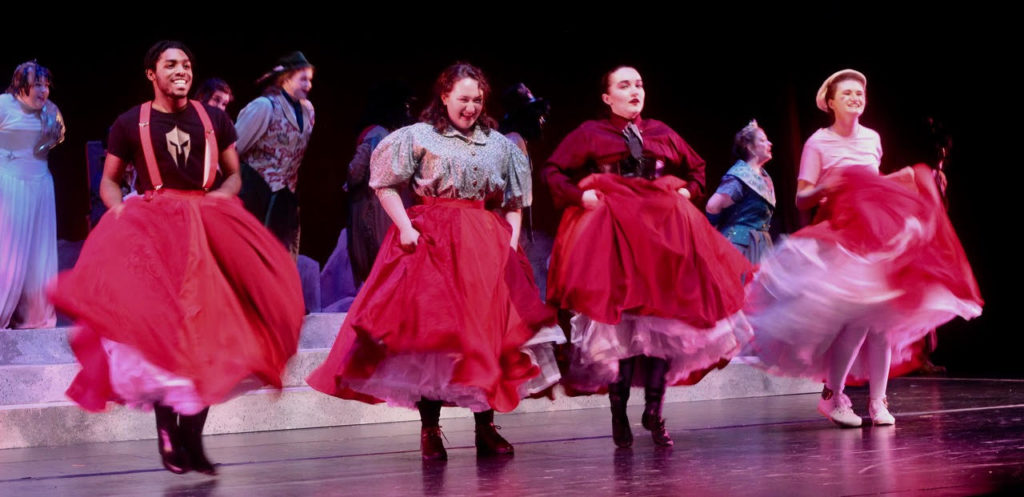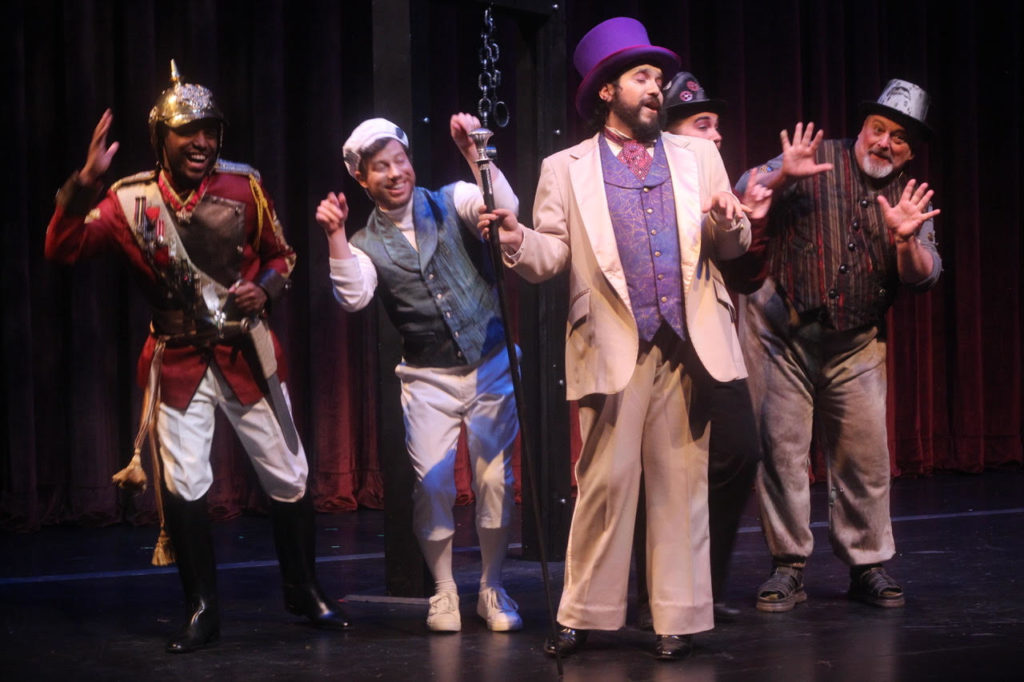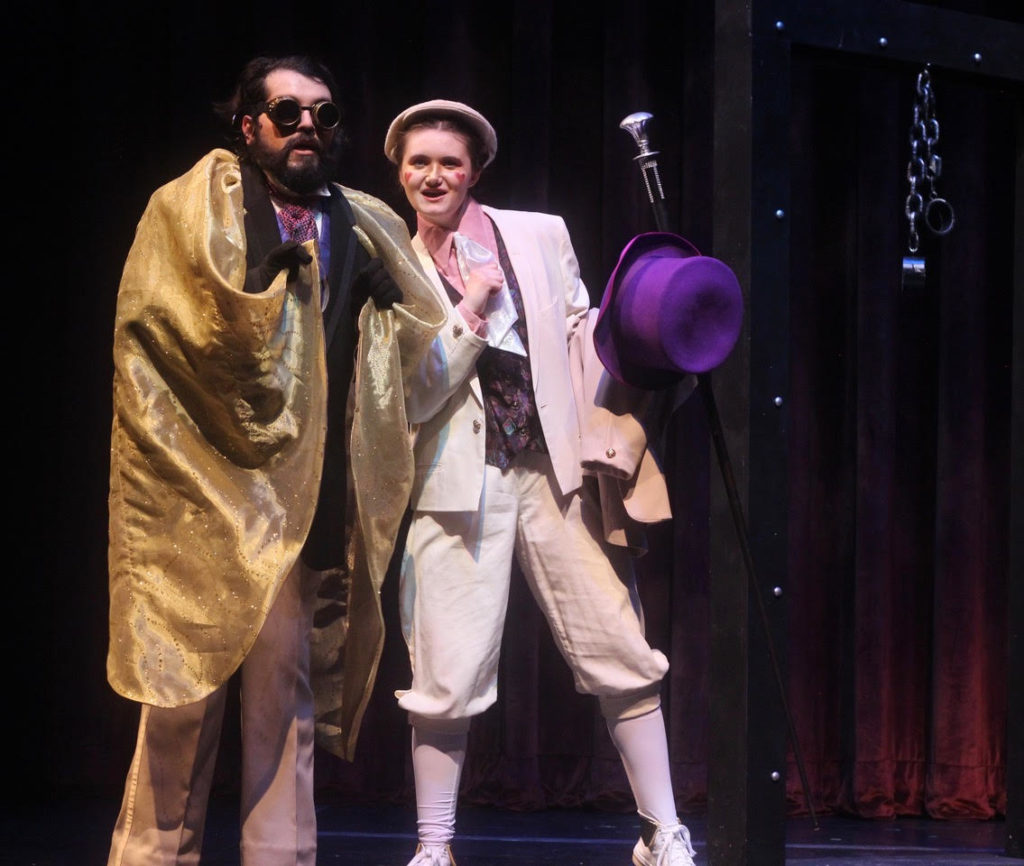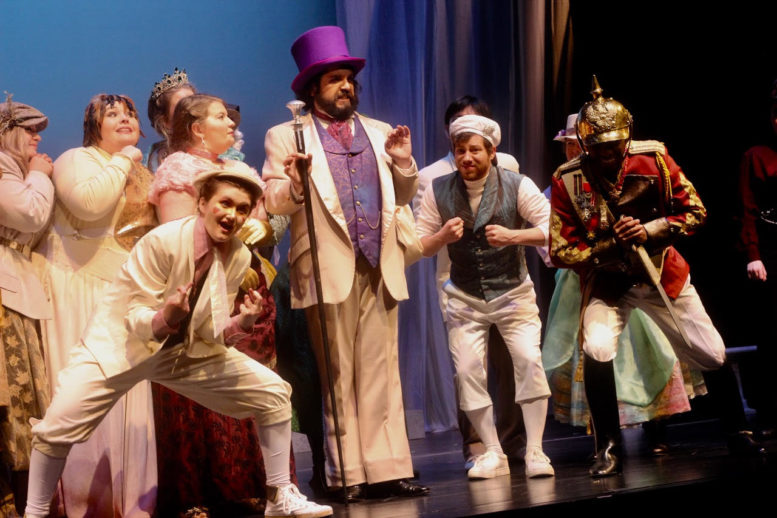By DAVID DUPONT
BG Independent News
It’s not easy being a god – not that I would know. Hanging out for eternity on Mount Olympus, surrounded by other gods, with only ambrosia to eat.
When you are the reigning deity things can be even worse, trying to keep the others, many of them your offspring by women other than your wife, in line.
Even gods need diversion, and that’s where mortals down below come in. They are the playthings of the gods. Their doings, the soap opera of the gods. Though sometimes, the deities are called on to intervene.
No surprise, that this can end up with mortals and deities alike partying in hell.
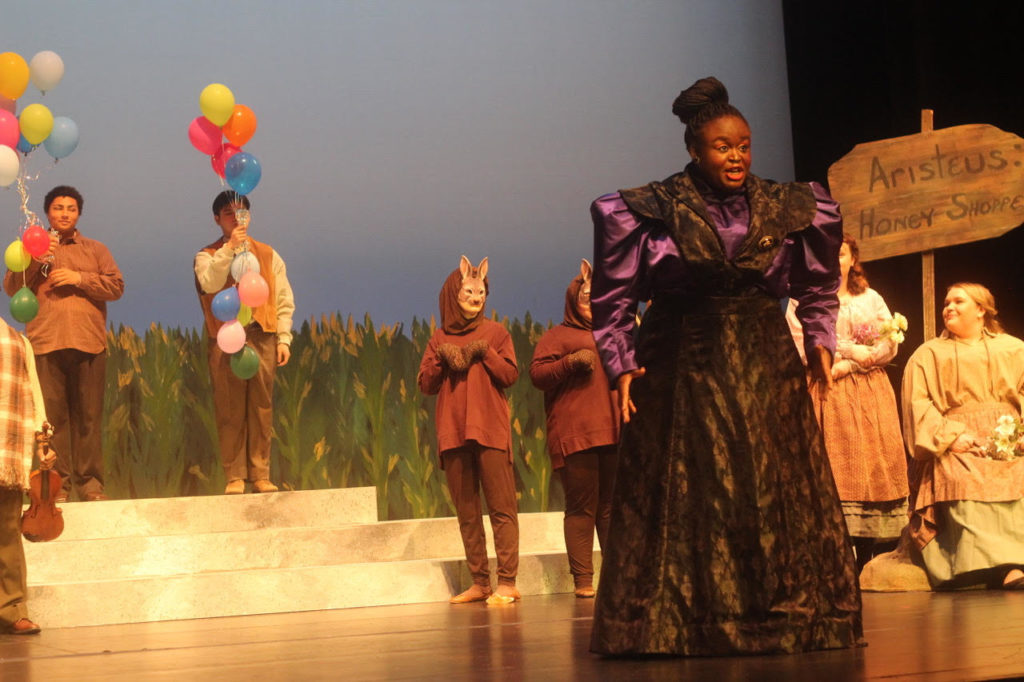
Such a mess, and in the case of Jacques Offenbach’s “Orpheus in the Underworld,” such a tuneful, comic delight.
The satirical operetta, directed by Jane Schoonmaker Rodgers, is on stage at the Donnell Theatre in BGSU’s Wolfe Center for the Arts, Friday at 8 p.m. and Sunday at 3 p.m. Click for tickets.
Calliope (Ikpemesi Ogundare) introduces the audience to the story. Her son, the talented musician Orpheus (Nick Kottman) is married to the beautiful Euridice (Annabelle Pollard). This much we know from Greek legend. But this is a fractured version of the oft-told tale.
Calliope is dismissive of her daughter-in-law. We can see why, when Euridice flounces onto the stage, bedecking herself in flowers while she waits for the one she loves, the shepherd Aristaeus. Orpheus arrives playing a lovely tune thinking she is the nymph he is infatuated with. They bicker about each other’s dalliances, but resolve that they are stuck with each other.
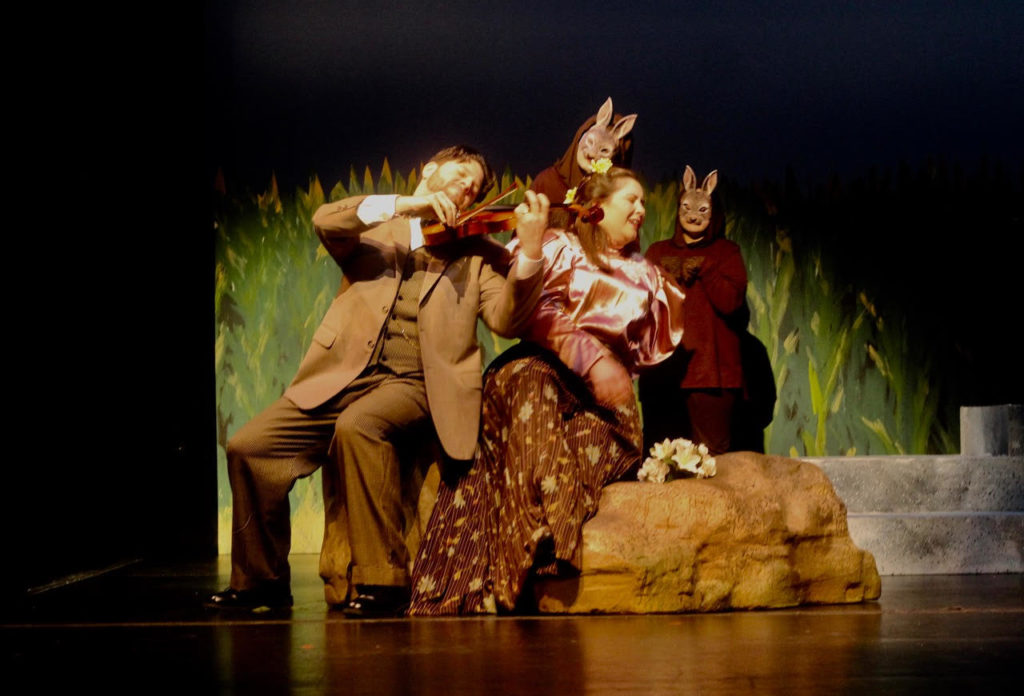
This plays out in a colloquial English translation with the occasional contemporary reference including, at one point, to the Falcon athletic teams. The dialogue serves as a guide through the story and the link to glorious song atop a full-bodied orchestra conducted by Emily Freeman Brown.
In the background a trio of rabbits, a silly, mostly silent Greek chorus, frolic. No, this is not the thunder and angst of Greek tragedy, but satire of the highest, which means going low, order.
It turns out the shepherd is Pluto (Anna Murcko) in disguise. The ruler of the underworld with the collusion of Orpheus absconds with Euridice to his realm. As far as the couple is concerned all is now well with the world, under or not.
Our hero’s reaction? “What bliss!”
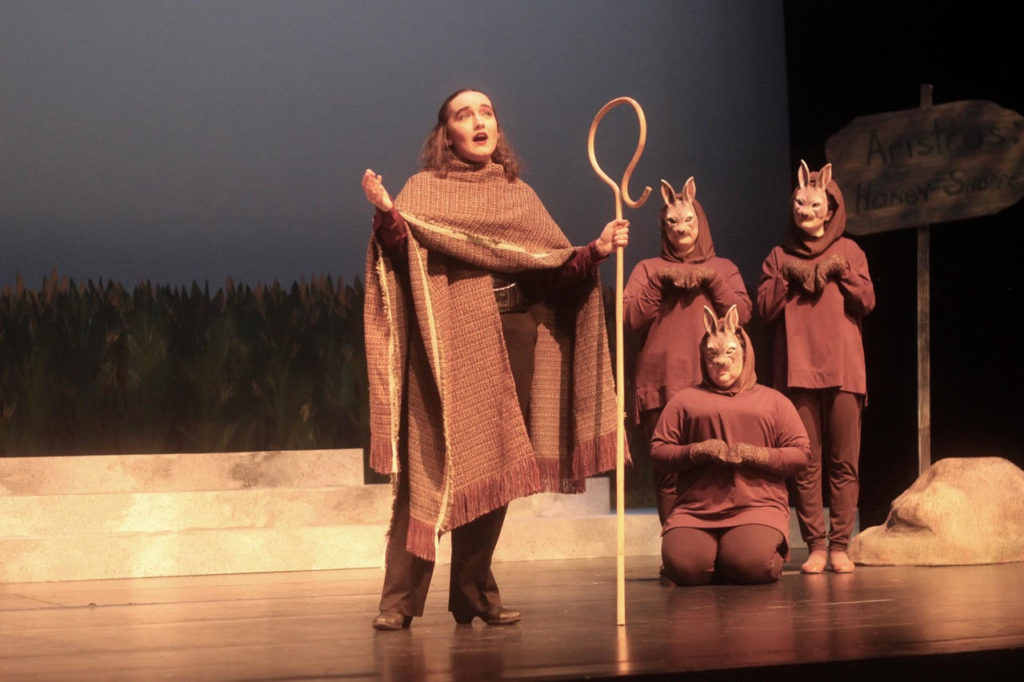
But not as far as Calliope is concerned. This is a wrong that demands to be righted.
So she and her son traveled to Olympus where Jupiter (Lucas Lourenco) presides. He’s quite the benighted ruler. His wife Juno (Kirsten Nordland) harangues him about his infidelities. His offspring mockingly catalogue his dalliances in song. He actually rather likes hearing of his past adventures.
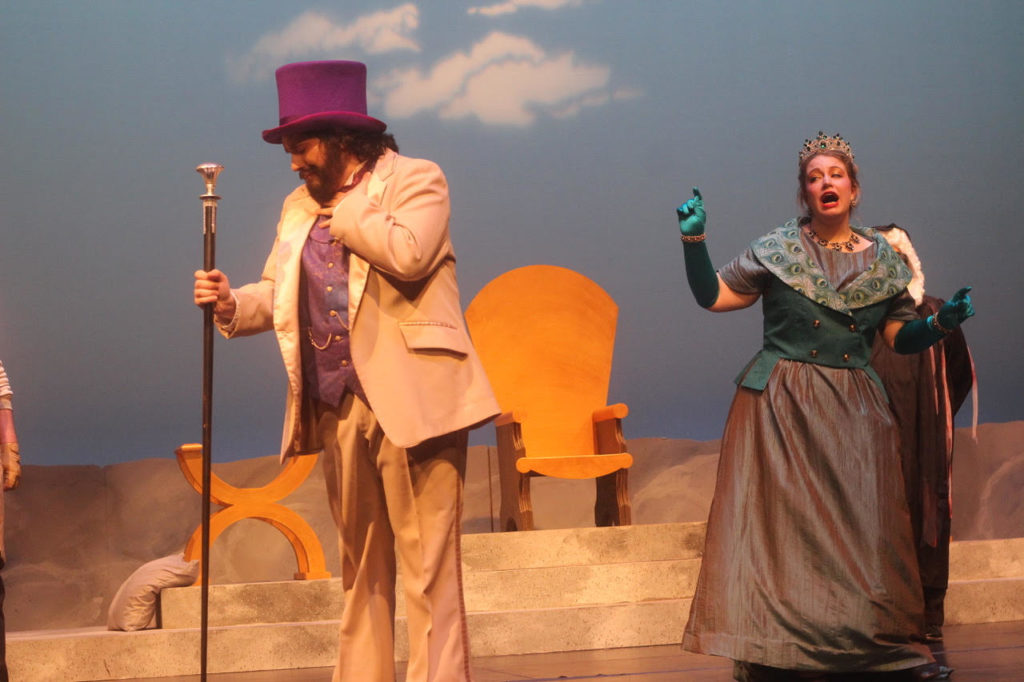
He, the self-described “protector of stray nymphs,” decides to travel to the underworld to resolve matters, and maybe get in on the action. The whole divine court inveigles him to take them along – even Hades is a welcome break from the boredom of their heaven.
Yes, yes, yes. There is a lot of convoluted narrative from beginning to end. It is all played to the hilt by the large and talented cast whether playing bunnies (Rebecca Kuch, Tiffany Schneider, and Christina Worcester) or the assortment of gods – the three women are also cast as goddesses, Cupid, Cybele, and Flora respectively. Kuch is especially entertaining as the mischievous Cupid.
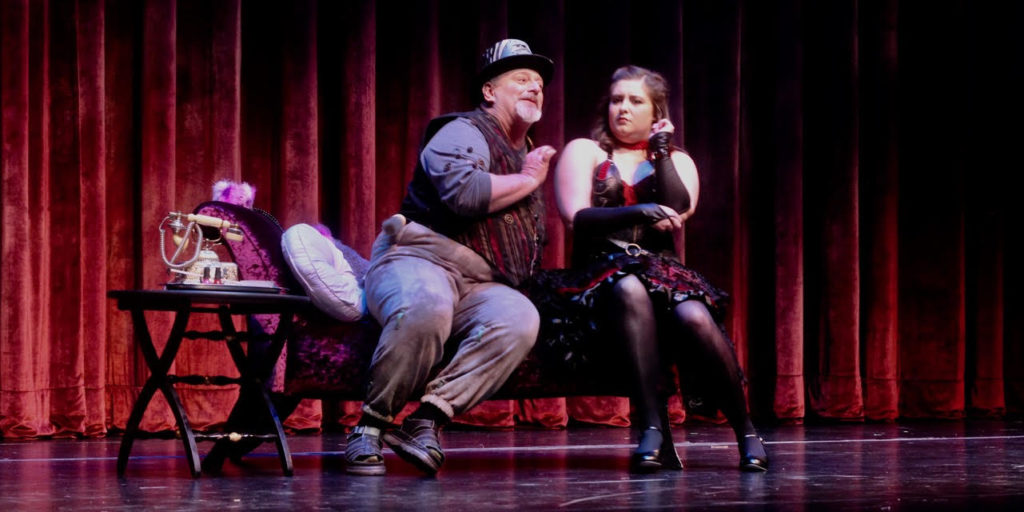
Geoffrey Stephenson as John Styx, the obsequious, and sleazy, “valued factotum of Hades,” shines as he recalls in song his former life as royalty.
The comic energy of the cast builds to the big moment, “the infernal galop,” best known as the “Can-Can.” The high kicking routine executed by Karli Christ, Tajj Crowder, Kuch, and Murcko.
Afterward there’s still a plot to be twisted further to accomplish the happy ending. That’s done using the same device that gives the original myth its tragic end.
“Orpheus in the Underworld” is comic entertainment fit for the gods and discerning earthly audiences.
